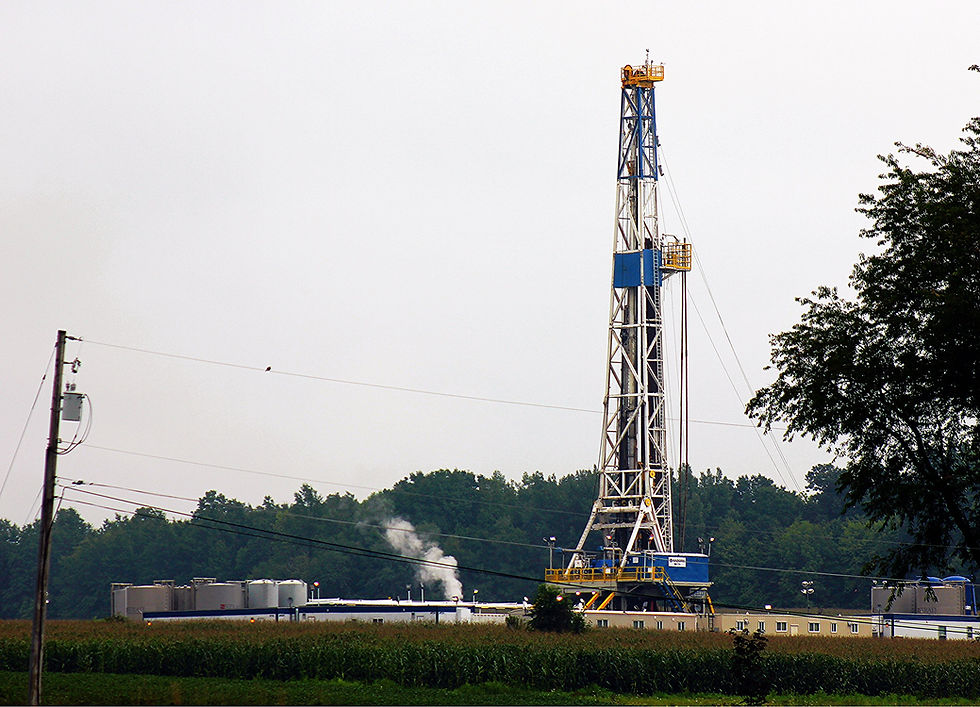Government under pressure to set up green levy on UK imports
- Apr 21, 2024
- 4 min read
Ministers are under growing pressure to firm up plans for a green levy on imports to the UK before the general election campaign.
The government is consulting on plans to introduce a carbon border adjustment mechanism (CBAM) from 2027. Under the system, overseas companies wishing to export key goods to the UK would have to show they were paying for their carbon emissions, or face a levy equivalent to the price paid for carbon by UK manufacturers.
This would ensure British manufacturers obliged to reduce their greenhouse gas emissions under the net zero target were not undercut by products from countries with lighter climate rules.
The CBAM is likely to affect imports of carbon-intensive goods, such as steel, cement, glass and ceramics, but the details of the scheme have yet to be set out.
Many Conservative MPs, Labour and the Liberal Democrats, and many businesses and economists, have said they support the plans in principle. However, some on the right of the Tory party, including arch free marketeers who object to such “red tape” interventions, and figures such as David Frost who are sceptical of the net zero goal, are opposed.
There are concerns this opposition will slow progress on the plans, and could mean the CBAM is in effect shelved before the general election, which must be held before the end of January.
The Conservative Environment Network, which comprises more than 100 backbench Tory MPs, urged ministers to press ahead. Tim Loughton, the MP for East Worthing and Shoreham, said: “We should be proud of the Conservative government’s successes in decarbonising our economy. But not every country has followed our lead. If we want to support British industry, we must ensure a level playing field for them to compete with cheaper carbon-intensive imports. These include those produced in China with its coal-dominated power grid.”
John Penrose, the Tory MP for Weston-super-Mare, said a CBAM for the UK would benefit all nations. “Once those countries realise that polluting doesn’t pay, because there’s no competitive advantage in it for them, they will have an incentive to become greener themselves,” he said. “As Conservatives, promoting free markets and handing on a healthy planet for future generations is part of our DNA. A CBAM provides a free-market way to tackle climate change.”
CBAMs have been discussed for decades, but have taken on new urgency in recent years as efforts to reach net zero greenhouse gas emissions have increased in developed countries. Last October, the EU introduced a trial CBAM, requiring manufacturers to show data on the emissions involved in the manufacture of certain goods, chiefly cement, iron, steel, aluminium and fertilisers.
From 2026, when the EU begins to impose levies for imports where the carbon price is lower than its own, UK manufacturers could potentially face charges totalling hundreds of millions of pounds a year unless they can show regulators they are paying an equivalent carbon price in the UK.
Jo Gideon, the Tory MP for Stoke-on-Trent Central, said UK companies would be at a severe disadvantage unless the government acted quickly. “When the EU implements its CBAM, high-carbon goods will no longer be able to enter the EU tariff-free. The manufacturers of these goods will instead turn to us, flooding our market with these cheaper goods and undercutting our British industries who have done the right thing and started to decarbonise,” she said.
“While there are still important questions about the design and scope of the UK’s CBAM, I hope that we can introduce this mechanism quickly to prevent this dumping of higher carbon goods.”
Labour is understood to support the principle of the CBAM, but is awaiting detail on the proposals. Wera Hobhouse, the Liberal Democrat spokesperson for energy and climate change, said: “Introducing a CBAM for high-emission products is a vital step in tackling the climate emergency and protecting UK businesses from unfair competition. With the government’s consultation set to conclude in just a few months, ministers must press ahead with these plans without delay. This mustn’t turn into another Conservative setback in our country’s efforts to fight climate change.”
Laith Whitwham, a senior policy adviser at the E3G thinktank, said: “The government has committed to introducing a CBAM in 2027 – a year behind the EU – but it could go much faster, particularly as the UK does not need to reach agreement across 27 member states. Dithering and delay at this point weakens the competitiveness of UK industry and threatens to slow the pace of global decarbonisation through the risk of carbon leakage.”
The Guardian has revealed that India is seeking exemptions from the UK’s CBAM as part of a potential trade deal. Whitwham said that would “be a disaster for the UK’s consumption emissions and for its steel sector. The UK government has just agreed to provide £500m to Indian steel giant Tata Steel to replace its UK blast furnace in Port Talbot with a cleaner electric arc furnace. Exempting India from the UK CBAM now would allow Tata to import steel from its higher carbon blast furnaces in India, without paying a carbon price – which UK producers must do. The UK would in effect be closing its own blast furnaces only to import more steel from blast furnaces abroad.”
A Treasury spokesperson said: “We are currently consulting on delivering a UK CBAM to ensure highly traded, carbon-intensive products from overseas face a comparable carbon price to that paid if the good were produced in the UK. This should give UK industry the confidence to invest knowing that their efforts won’t be undermined by carbon leakage.”




Comments